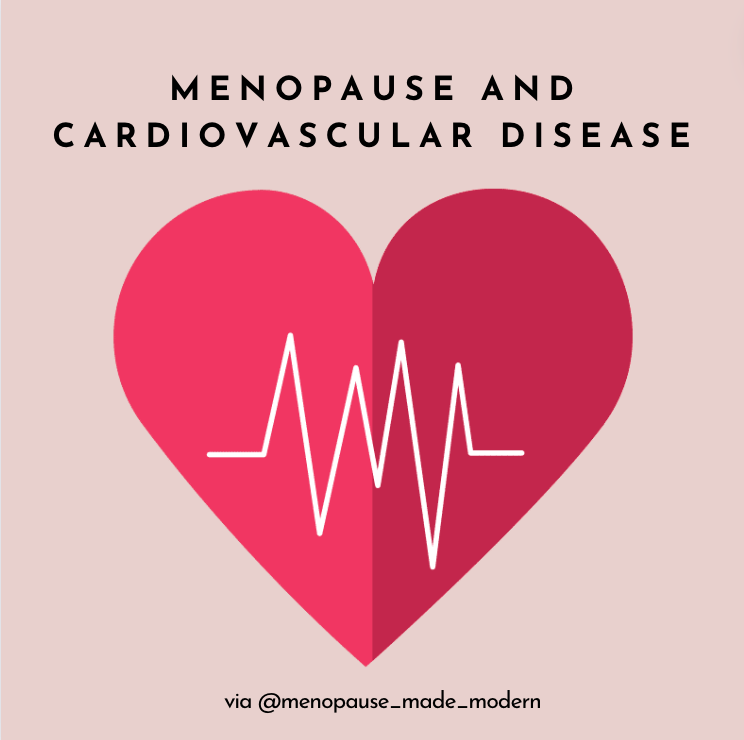Understanding the Silent Signs: Cardiovascular Disease in Menopausal Women

This article was contributed by Menopause Made Modern -- a community platform designed to help women of color navigate menopause better together. Although menopause does not cause heart disease, there are particular risk factors that increase around the time of menopause.
As women transition through menopause, declining estrogen levels can lead to various physiological changes, some of which can significantly impact cardiovascular health. Recognizing the key symptoms of cardiovascular disease during this phase is crucial, as women’s risk for heart-related issues tends to increase post-menopause. Let’s shed light on these symptoms to empower women with the knowledge they need for early detection and prevention.
- Unusual Fatigue and Weakness
One of the most overlooked symptoms is unexplained fatigue. While it’s common to feel occasionally tired, persistent exhaustion that doesn’t improve with rest could signal heart trouble. Women in their menopausal years should be vigilant if they feel unusually fatigued after activities that they could perform easily before.
- Shortness of Breath
If you’re experiencing difficulty breathing during routine activities or if you find yourself gasping for air after minimal exertion, this could indicate that your heart is struggling to pump efficiently. This symptom should never be dismissed, especially in menopausal women, as it could indicate the early stages of heart disease.
- Chest Discomfort
Chest pain or discomfort, often described as aching, pressure, or tightness, is a hallmark symptom of CVD. However, in women, this pain might not be as pronounced as it is in men and can be mistaken for indigestion or anxiety. Any form of discomfort in the chest warrants immediate medical attention.
- Irregular Heartbeats
Palpitations or the feeling of skipped heartbeats can be a common menopausal symptom due to hormonal changes. However, when accompanied by other symptoms or if they become more frequent, it might suggest an underlying cardiovascular issue.
- Swelling in Extremities
Sudden swelling in the feet, ankles, legs, or hands can be a sign that your heart isn’t pumping blood as effectively as it should. Fluid retention is a symptom not to ignore, as it may indicate heart failure, a condition where the heart cannot meet the body’s blood circulation needs.
- Dizziness or Lightheadedness
Feeling dizzy or lightheaded, especially if these sensations come with any form of activity or exercise, could be a sign that your brain isn’t getting enough blood flow, which can be due to CVD.
- Neck, Jaw, Shoulder, Upper Back or Abdominal Discomfort
Women are more likely than men to experience these subtle, non-chest pain symptoms of heart disease. They can easily be mistaken for muscle pain but could indicate a silent heart attack or ischemia.
- Sleep Disturbances
Trouble falling asleep or staying asleep without a known cause might be associated with low-grade heart failure. Sleep apnea, which is a risk factor for heart disease, is also more common after menopause.
- Sweating and Hot Flashes
While hot flashes are a common symptom of menopause, excessive sweating or ‘cold sweats’ can also be early warning signs of heart issues.
- Nausea and Lack of Appetite
Nausea or a sudden loss of appetite that doesn’t stem from a gastrointestinal issue might be related to heart disease.
Remember, cardiovascular symptoms in women can be subtle and sometimes vague. They’re often different from the ‘classic’ heart attack symptoms men experience and are widely recognized. It’s also important to note that psychological stress, a common occurrence during the menopausal transition, can aggravate these symptoms.
If you’re a peri or post-menopausal woman experiencing any of these symptoms, it’s essential to discuss them with your healthcare provider. Prioritizing heart health is more critical than ever during and after the transition into menopause. Lifestyle interventions such as a healthy diet, regular exercise, and stress management, combined with vigilant monitoring of heart health, can make a substantial difference in preventing or managing CVD.
To all the women navigating this chapter of life, let’s take heart health to heart. Awareness is the first step towards action, and your heart deserves all the care in the world!
Follow Menopause Made Modern here:
Instagram:@menopause_made_modern
Facebook: @menomademod
YouTube: @menopausemademodern5372
More Posts
-
Tips for a Calmer, ...
The festive season is a time for joy and connection, but it can also disrupt routines and feel overwhelming, particularly during (peri)menopause. ...
Read More -
Managing Hot Flashe...
This article was contributed by Maryon Stewart BEM, widely recognized as a pioneer of the "Natural Menopause Movement." Maryon empowers women to na...
Read More -
Cool Holiday Gift G...
This holiday season, give the gift of cool comfort to the hot women in your life. Become's versatile Anti-Flush™ styles make great gifts! Designed...
Read More







Comments
0 Comments
Leave a Comment